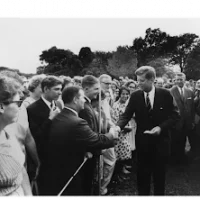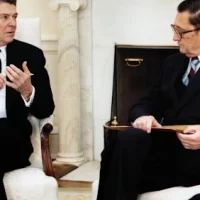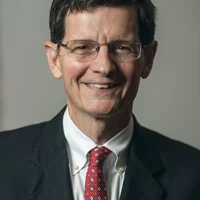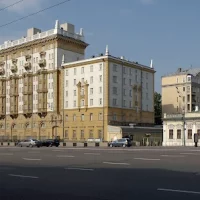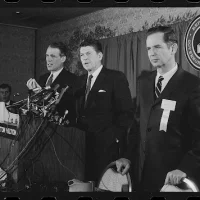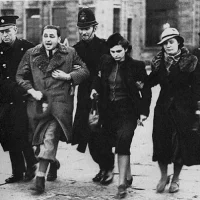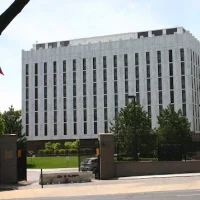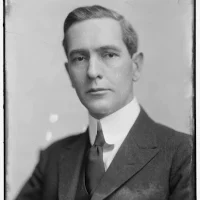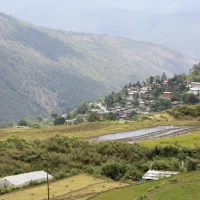John F. Kennedy inspired generations of Americans toward a life of service starting with a few impromptu lines not many people know about. Months before he called on his fellow Americans to “Ask not…” during his inaugural address, Kennedy riffed with students at the University of Michigan, Ann Arbor, on October 14, 1960. It was… Read More "October 14, 1960—JFK’s Call to Service and Diplomacy"
The 45-year-long Cold War of protracted geopolitical contention between two global powerhouses helped determine the unprecedented magnitude of nuclear weapons around the world. Treading into the unknown waters of global nuclear warfare, the United States and the Soviet Union made great strides in negotiating nuclear disarmament in Höfði, a private estate in Reykjavík, Iceland. President… Read More "From START to Finish: Behind the Scenes of the Tense U.S.-Soviet Nuclear Disarmament in Reykjavík"
When disaster strikes, foreign service officers are called upon to support the U.S. government’s response. This was the case in the years following the terrorist attacks of September 11, 2001—when soon after, President George W. Bush called for the deployment of troops into Afghanistan, marking the start of America’s war on terror, which would later… Read More "Operatives of U.S. Diplomacy: Advocating for Foreign Service Officers Post-9/11"
An assignment in an authoritarian regime can be a tricky proposition for a foreign service officer. One would likely be under constant surveillance, and would therefore have to be very cautious as it would not take much to break rules that may seem arbitrary and unreasonable. Such was the experience of Karl Sommerlatte, who served… Read More "Hooliganism with a Camera: How Photography Ended a Diplomatic Tenure in Moscow"
Imagine this: It is 1987, you are the president of the United States of America, your country is one of the two main rivals of the Cold War and your opponent is trying to build a gas pipeline from its homeland into the heart of one of your closest allies. How would you react? Hold… Read More "The Siberian Pipeline"
Becoming a refugee often involves losing more than just one’s home country. Perhaps one of the most important is the sense of belonging. This feeling is synonymous with feeling accepted and included and indeed helps people feel at home. Hence, after leaving their birth homes, refugees tend to look for a sense of belonging in… Read More "The Lost Sense of Belonging: An Attempt to Fit in"
In 1972, during the détente period in U.S.–Soviet relations, the United States handed the Soviets the key to its new embassy, enabling one of the largest spying scandals of the Cold War. Although the detente period ushered in improved relations between the rival countries, neither could resist eavesdropping on the other when they agreed to… Read More "A Tale of Two Embassies—Microphones, Microwaves, and Bugs"
In 1938, in the shadow of the Great Depression came rumblings from Europe of a great war and with it the open hatred and extinction of several groups, most famously Jews. President Franklin Delano Roosevelt and his administration remained largely focused on recovering from the Depression and desired to remain uninvolved in the chaos in… Read More "State Department Response to the Holocaust—Jewish Refugees and Attempts to Enter the United States during WWII"
In the 1960s, Bhutan allowed visitors only by royal invitation. The last independent outpost of Tibetan culture after the Chinese conquest of Tibet, State Department Political Officer George Griffin stayed in the country’s royal guest house during his visit. George Griffin, a political officer in Calcutta from 1969–1972, saw firsthand what he called a “sixteenth… Read More "“Like Sixteenth Century Switzerland”—An American in Bhutan"
Even when the situation seems most dire, the development process is never static. Bottom-up, local efforts help make the process the most feasible. Such was the case in North Yemen in the late 1980s, when the country’s first family planning policy was developed. The need for this policy proved to be especially urgent due to… Read More "The Development Process is Never Static: Reorienting and Expanding Family Planning in Yemen"

